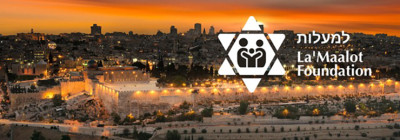
In Parashat Pinchas, we encounter two familiar topics: the counting of the Jewish people and the laws of the sacrifices in the Temple.
We also find additional laws regarding the weekday sacrifices. They specify the nature of these offerings and the time of the day they should be brought. Here we also find mention, for the first time, of the additional offerings brought on the Sabbaths and on holidays. Each has its own specifications, which are listed here:
Let’s focus on the sacrifices brought on the Sukkot holiday.
On the first day of this holiday, 13 bulls were brought as an additional burnt offering. On the second day of Sukkot, 12 bulls are brought; on the third day, only 11, and so on, in descending order. On the last, the seventh day, seven bulls were laid on the altar.
Reckoning up the total, we find that over the seven days of Sukkot, 70 bulls were sacrificed, corresponding to the 70 nations of the world. (We spoke of this when we discussed Parashat Naso.)
The 70 bulls laid on the altar at Sukkot are sacrifices brought on behalf of all mankind. During these seven days of Sukkot, we Jews ask G-d for rains and harvests for people in China, and in India, Russia, the Americas, in all four corners of the world. (Among Jews, a prayer for rain and bountiful harvests usually expresses a request for general material wellbeing.)
The Sukkot holiday lasts seven days. An additional, eighth, day brings us the holiday of Shmini Atzeret, which literally means “the Eighth (day) Which Holds Back.” Those who had gathered in Jerusalem to celebrate Sukkot, there, as G-d commanded, may not yet leave the city. They remain “held back” in Jerusalem, as it were, for this eighth day as well. It is a separate holiday in its own right, but it also serves to bring the Sukkot week to its joyous conclusion.
The Torah (Bamidbar 29:35-36) says: “On the eighth day, extend [the holiday] for you; do no work. And bring… one bull…”
What is the point of such an extension? About this verse, the Midrash Rabbah (Pinchas 24) says: “Now we understand the words of the Psalm [109:4], ‘For my love they hate me, but I pray!’ Jews say to the Almighty: ‘Master of the Universe! We brought seventy sacrifices and prayed for the wellbeing of all (the world), and they hate us…’”
The Almighty answers them: “You brought sacrifices for all the peoples of the world during the seven days of the Sukkot holiday. On the eighth day, sacrifice one bull for yourself… This is an extension of the holiday for you.”
Shmini Atzeret is, so to speak, a special, festive reception for the inner circle of those who are the closest to G-d.
Note that, when setting the date for this final festival, Hashem chose a day which was preceded by a long holiday, Sukkot, or, as we would say in another context, “many days of rejoicing.”
When it comments on the words “an extension of the holiday for you,” the Midrash also makes note of this fact.
This calls to my mind my experience as a teacher at an evening school for working youth, where I taught at one time.
The head of the district police department was also enrolled there because he needed to earn a high school diploma. He was a conscientious student and worked diligently at his studies.
But when the Russian national holidays on May 1 and November 7 were drawing near, this otherwise diligent student disappeared. For two weeks before each holiday, and several days following it, he was nowhere to be seen.
Why? He explained as follows: “Before the holiday, people look forward to celebrating the special day. They drink already a week or two in advance. And after the holiday, it takes time until the bottles of liquor go back into storage. The result is that, twice a year, the police must work overtime to cope…”
This is not the nature of Jewish festivities.
I also recall when the USSR introduced a five-day workweek instead of a six-day one. Strangely enough, many women were upset by this innovation: it was difficult for them to put up with more frequent quarrels and drunken fights that resulted from their husbands’ additional free time.
The Midrash teaches that, for many peoples, holidays and leisure time are fraught with drunkenness, gluttony, and fights. Not so with the Jews! During the week, some people’s behavior is not its best because working hard for one’s daily bread forces them to spend long hours in a negative environment.
But then comes a Jewish holiday. How does a Jew spend his time?
He starts in the synagogue, where he prays and listens to the words of the Torah, the Prophets, the Midrash, and the Talmud. Then, at the festive table at home or with family and friends, he hears the Kiddush recited, recalling the meaning of this day and its history. We also recount stories from the lives of our ancestors, and we describe miracles that G-d performed for them.
Such a pastime uplifts a person spiritually, builds him and imbues him with confidence and hope.
Copyright© 2023 by The LaMaalot Foundation. Talks on the Torah, by Rabbi Yitzchak Zilber is catalogued at The Library of Congress. All rights reserved. Printed in China by Best Win Printing, Shenzhen, China.
Parshat Pinchas: The Jewish Response To Drunkenness
Typography
- Smaller Small Medium Big Bigger
- Default Helvetica Segoe Georgia Times
- Reading Mode




